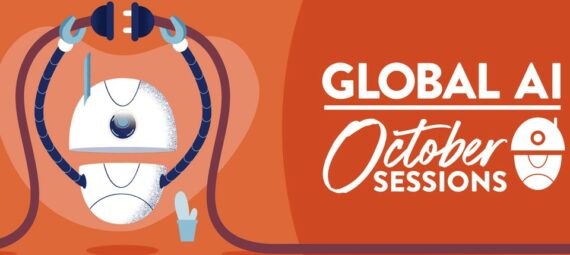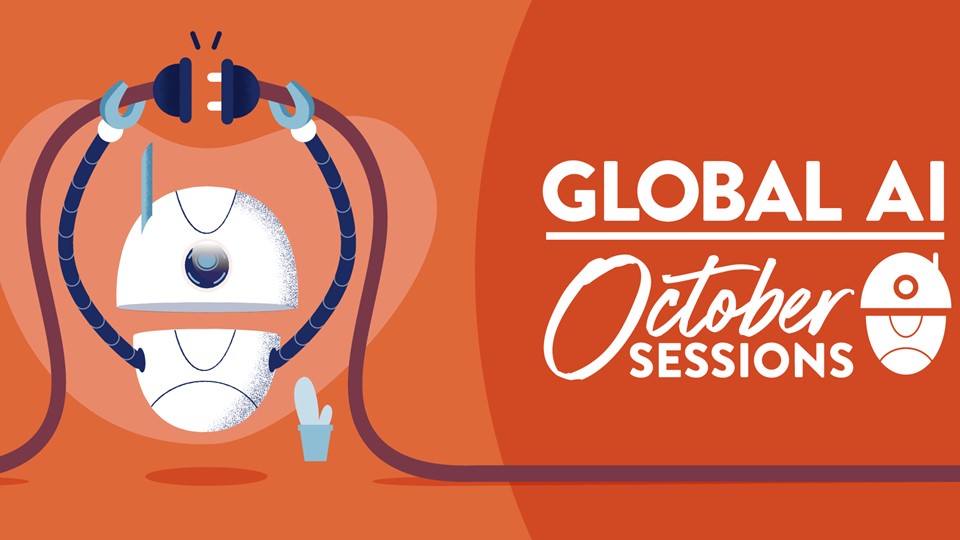
I have always been very interested in everything AI-related because I find it fascinating to see how programs can learn on their own. AI might have had its ups and downs (the so-called AI winters) but AI is getting a prominent spot in our lives.
Although I am studying cybersecurity, I am still open for a job in AI and I am even thinking about doing a banaba or an extra course after my current studies to learn more about it. This event was thus an ideal opportunity for me because here they explained how to start in AI with no experience at all.
The Global AI Community empowers developers who are passionate about AI to share knowledge through events and meetups. It’s a partnership that creates a community for AI passionates. From their headquarter in Driebergen, NL, they organize (live) events with guests from all over the world. Their content is for everyone interested in AI, even for those who don’t have a background in that field.
Our mission is to connect AI communities across the world to share ideas and content with each other. We want to enable AI enthusiasts and professionals to join local user groups, connect with like-minded peers, or start their own user group.
Global AI
The October Sessions exist of 4 different dates in October: 8/10, 15/10, 22/10, and 29/10. In each session, they dive deeper into the world of AI. Today I will be talking about the first session.
8th October – Getting started in AI
In this session, they focused on how to get started in the field of AI, even with no experience at all. They showed us some demos and gave us some tips should we ever decide to start with AI.
The classic problem of turning it off and back on again
One thing I found pleasantly surprising was that they did the effort to find some people who took turns to sign what was being said so that even deaf people could follow along – or we as long as there was no sound 😉
It’s not that I know sign language – I still don’t even know what sign language they were using – but I definitely could understand the sign for “Just a second” when they realized there were some troubles with the audio.
I completely understood that they couldn’t foresee this and that this was just Murphy’s Law with live events, and certainly when the hosts and the guests live on opposite sides of the world. I just think me and the rest of the audience were just happy the problem wasn’t on our side and that it was just a classic problem of turning the streaming off and back on again.
Introducing some AI tools
The event started with a discussion between the 2 hosts, Willem and Seth, about some AI tools. They talked about Metrics Advisor, spatial analysis, and Azure Machine Learning Studio.
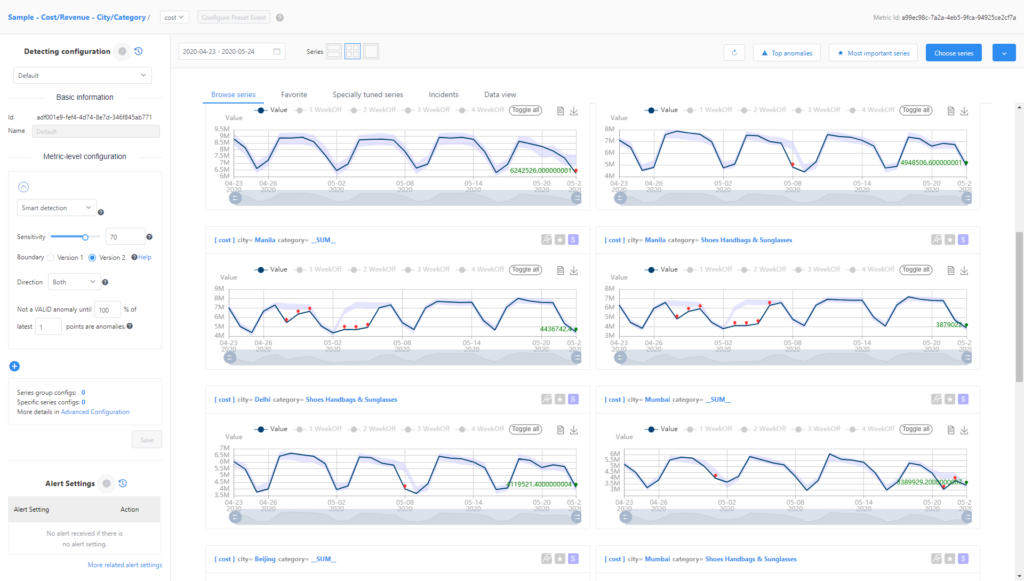
Metrics Advisor 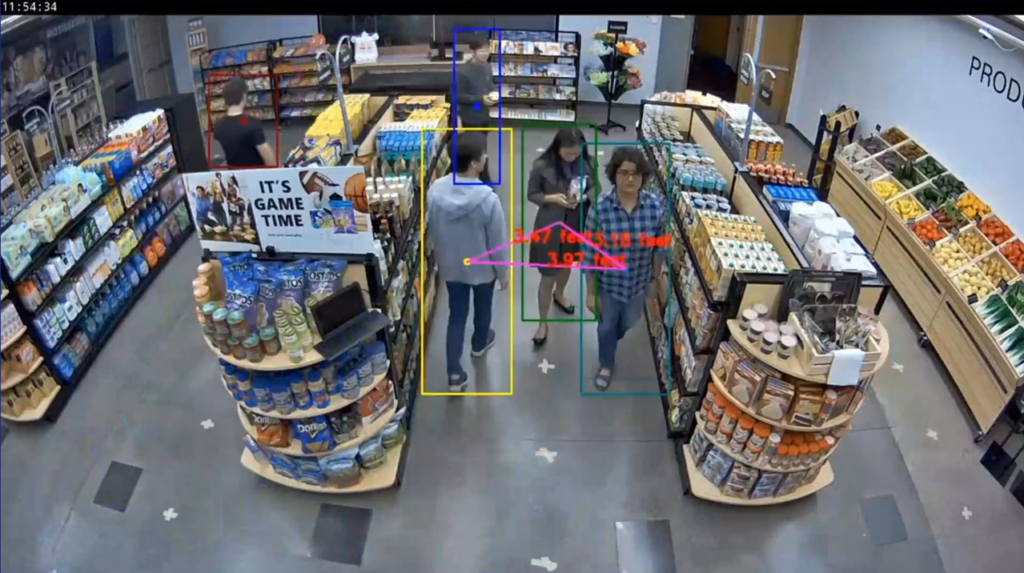
Spatial Analysis 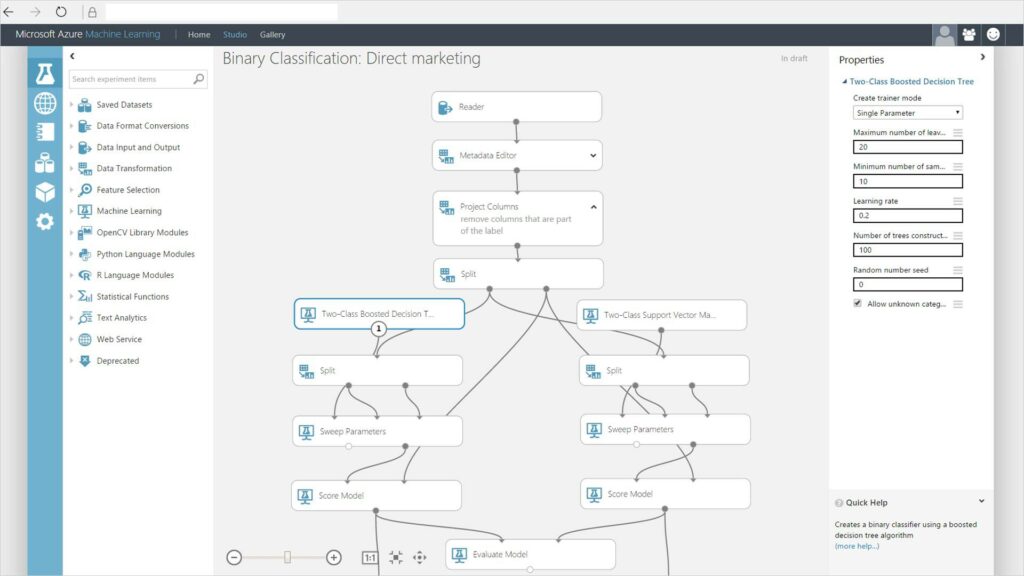
Azure ML Studio
- Metrics Advisor: anomaly detector made with Microsoft Azure that alerts through an API,
- Spatial Analysis: way to track people in an open space to count them and calculate the distance between them; a useful thing for a shop during social distancing, or just, in general, to get an alert when the checkouts are getting crowded and more checkouts need to be opened,
- Azure Machine Learning Studio: a good platform for people who want to start with AI. It works very visually and exists of making a schematic view of how your model should work without writing code;
Introducing the first guests
The first guest Willem and Seth introduced was Veronika Kolesnikova, a software engineer from Boston.
Veronika explained how she once made a meditation app that asks before and after a session how the user is feeling. This was a very blunt way and needed improvement. It was then she started reading books about AI to learn about techniques and tools. She then solved the problem with the app by using cognitive services that analyzed the facial expressions of the user to determine their mood before and after. Veronika had thus no background in AI but still managed to make an app that used it.
After her short story about herself, Veronika answered our question about whether to start with making our own model or with using existing services when having no experience with AI. Her advice was to start with finding a suitable already existing model and then later figuring out what tools to use as soon as we have enough data to train our own model.
Marian Dragt was the second guest that was introduced to us.
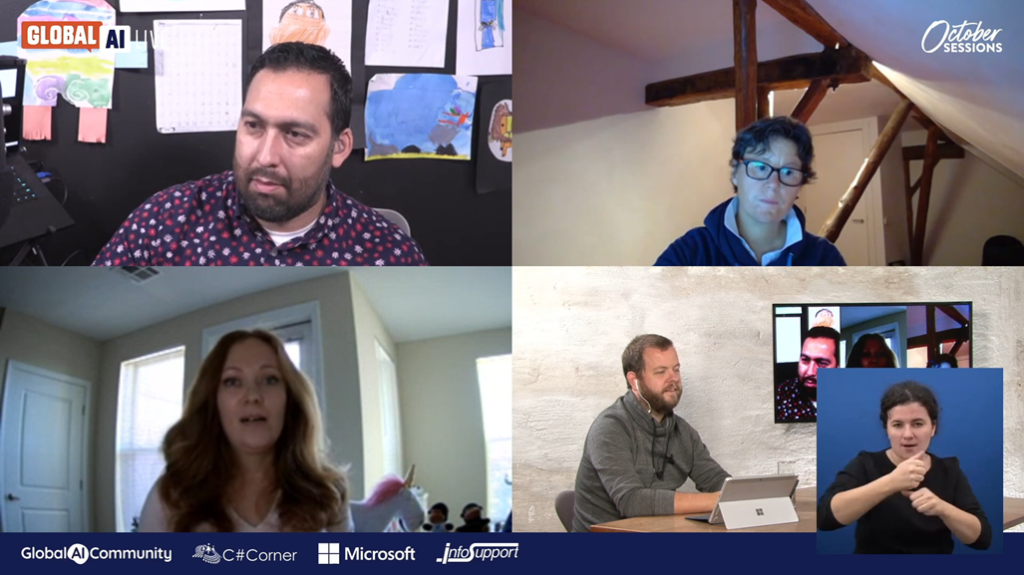
Marion began by giving us some additional tips on how to start with AI with no background. She assured us it takes time to learn AI because everything changes now and then so it will be a constant learning process. She gave us the advice to take it step by step and told us to get in touch with someone that could help us with our learning process. She also said there are 2 approaches to learn AI: one is to learn the rules by starting with learning algebra, and the other one is to learn on the way by immediately building models.
Marion also gave us some learning sources:
- Andrew Ng, a computer scientist and author focusing on machine learning and artificial intelligence,
- Microsoft Learn, a platform with exercises on developing AI models with some explanations,
- Microsoft docs, a site with exercises on developing AI models;
She also talked about some books, but she couldn’t remember the titles. So I searched the Internet for some and I think this site has a nice top 10.
The ethical aspects of AI
Unfortunately there are also many ethical aspects associated with AI when processing personal data and analyzing personal behaviors.
Marion told us to be aware of our sample and to ask ourselves if it would be a good representation – are you using the correct and enough variables? She also advised us to document every step and to collaborate with others to mitigate the bias of the sample.
Veronika completed her by saying we should definitely include other people and preferably people with different backgrounds and from different cultures. She also advised us to constantly retrain our model to improve it so it would be ethical at all times.
Cognitive services
Veronika Kolesnikova was the first guest to give us a demo of something she worked on. She showed us a script in Azure that functioned as an anomaly detector. If the anomaly detector would find an anomaly it would send an email. You could choose to send an email once a day or every time an anomaly occurred. The distribution of the email could with SignalR, SendGrid, or with Azure functions.
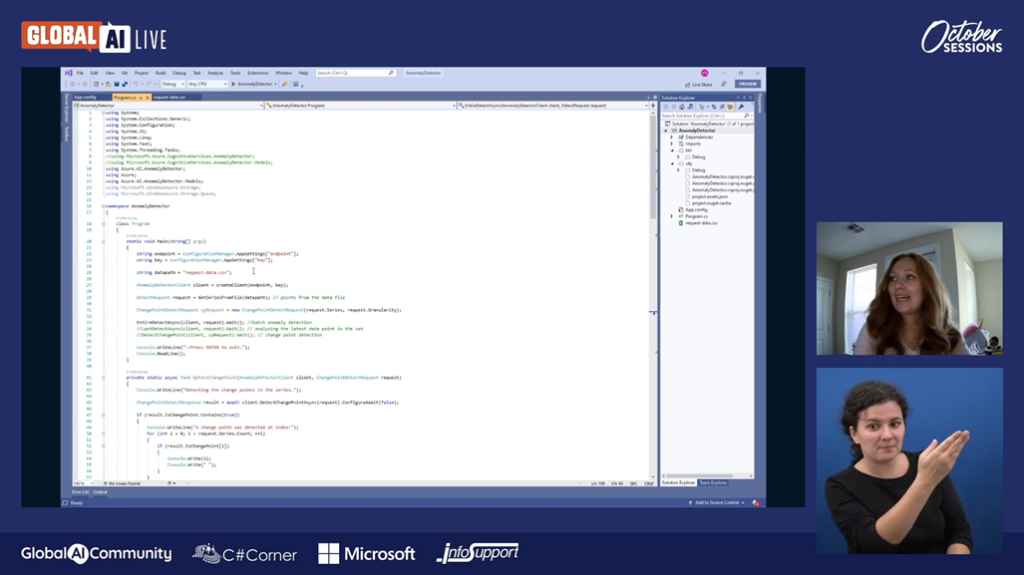
Cognitive computing (CC) describes technology platforms that, broadly speaking, are based on the scientific disciplines of artificial intelligence and signal processing. These platforms encompass machine learning, reasoning, natural language processing, speech recognition, vision (object recognition), human-computer interaction, dialog and narrative generation, among other technologies.
Wikipedia
After her demo, Veronika gave us some tips based on our questions. She also suggested Microsoft’s cognitive services (Anomaly Detector and Metrics Advisor) to learn about cognitive services because they have a portal with examples and documentation.
Custom computer vision
The next demo came from Marion Dragt on computer vision. She began from scratch and showed us every step on how to retrain Microsoft’s custom vision service. She explained to us why we need at least 20 images to train and then a few extra to test our model and how the model would, in the background, cut the pictures into different pixels to compare then in an advanced way.

Computer vision is an interdisciplinary scientific field that deals with how computers can gain a high-level understanding of digital images or videos.
Wikipedia
She also showed us how easy it is to retrain your model if your model comes across something it has never seen before. In that case, you just have to change the tag so the model can use it as training data instead of test data.
Marion then suggested her own blog and Henk Boelman’s blog as resources to learn more about computer vision and even to make some labs. Netron from Github should be educational as well.
The history of AI
The last guest, Richard Campbell, talked about the history of AI from Alan Turing until the game Go with AlphaGo and AlphaZero. He told us there are 2 types of people in the field of AI: the neats who prefer decision trees, and the scruffies who think neural networks are the best approach. He also mentioned the AI winters (e.n. the times when AI was less popular) and we might have another AI winter soon.
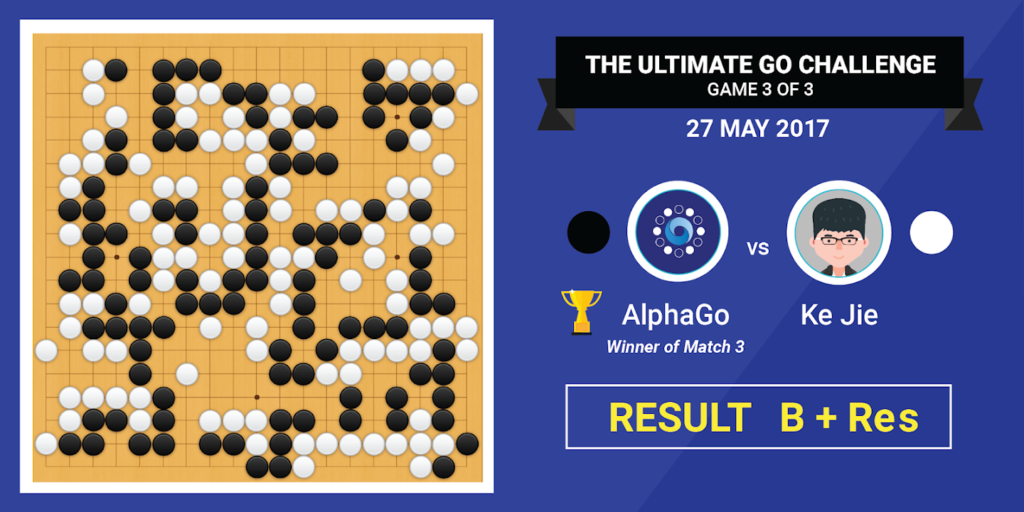
AlphaGo – computer program developed by DeepMind Technologies that won against the best human player in the board game Go in 2016, but was defeated by AlphaZero in 2017, that later lost from MuZero in 2019
To be continued…
I learned a lot about getting started in AI and I’m feeling more confident that I would succeed at learning it on my own, even with no experience at all. With that in mind, I am looking forward to next week!

